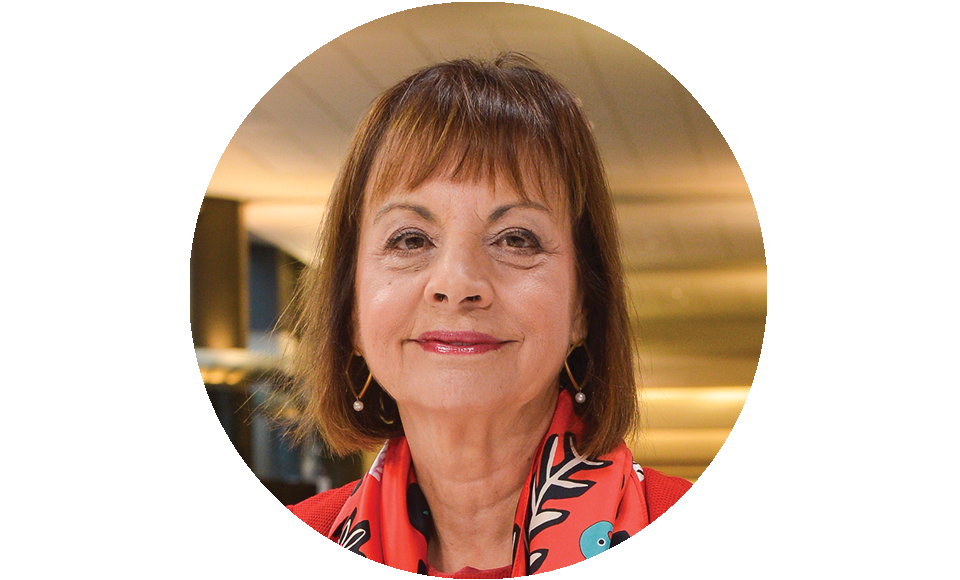Maria Manuel Leitão Marques, Member of the European Parliament
Strategy emerges from the Greek word meaning the art of making war. Today, the concept designates the plans and actions necessary to achieve a specific objective or result from whatever activity (politics, business, etc.).
In Portugal, we have always needed strategies for various public policies but, when looking to our history, there are more occasions on which strategy was absent than when we were able to count on its company. The word frequently gets abused in political discourses and ignored in the following actions.
Even when there is a strategy set out on paper, it seems the desire to implement it ends at that same moment. On the way, there is frequent forgetfulness driven by the force of circumstances, the speed needed to apply European funding, by changes in government and all the other examples that might be given were they not so clear to so many.
However, we are not condemned to this fate. There were successful cases; one was undoubtedly the field of science and, more recently, the vaccination campaign. Might we then expect the same for the PRR – the Recovery and Resilience Plan, which comes in addition to the new European funding framework?
1. The national science strategy started out with a good choice of leader, which was repeated once or twice and thus demonstrating that people truly are irreplaceable. José Mariano Gago designed his strategy for a science policy while still the President of JNICT (now the Foundation for Science and Technology) and implemented it as minister in various Socialist governments with only brief interruptions. I was a researcher at the time and a witness to how we went from doing science by chance to become an organised and duly evaluated scientific community.
Despite the unexpected departure of its lead architect, favourable political conditions ensured that the strategy advanced as indeed demonstrated by the results obtained in the last five years. The technological balance of payments is positive and growing systematically. The rate of higher education graduates in the population this year reached 45.5% to which the value paid to polytechnic education greatly contributed. The number of active researchers in the population grew and hit a historical peak of around 10.2 researchers per thousand active persons in 2020, with 41% employed by the private sector. Total expenditure on R&D reached a new maximum in 2020, up over 43% since 2015. And there are other ongoing programs that complement and reinforce the science strategy with the space and digital competences programs providing two good examples.
Seem from Brussels, this is undoubtedly an area where everything strikes the right chord with the best of the objectives handed down by the Union. The ‘war’ is not won but many battles have been successfully fought.
2. The second case, more mediatic but far simpler, emerges out of the vaccination campaign. Once again, there were clear objectives, organisation, command and control and the internalisation of what needed to be done by those implementing the vaccination plan. Portugal managed to rank among the best of European countries in executing this strategy and the results thereby obtained.
3. We now have a new strategic challenge to ensure the implementation of the PRR and the new framework of European funding does not prove a patchwork blanket, incapable of protecting us from future crises or prepare us to deal with the digital and climate transitions, which will require many changes to the economy, the state administrative structure and mobility, both in professional terms and above all in the daily lives of us all.
For this to happen, once again, it is not enough to have a good written strategy for an enlightened mind. It is necessary that this is centrally coordinated, perceived and appropriated by the many decision-makers to ensure the path is followed without deviations other than the adjustments necessary to a world that is changing at an astonishing pace.

I perceive this as at the core of being organised but, knowing the terrain where the actions are taking place, I confess to feeling fearful.
I fear the challenge of the competences and the investment in knowledge, which have to be priorities, are not taken seriously because the results do not become visible over the short term.
I fear that we will be distracted by the temptation of concrete, which demonstrates work-done and has been the key zone of comfort for the expenditure of European funding. There are investments of this type that are essential, including in housing, but others most certainly are not particularly when abandoning rehabilitation in favour of new constructions.
I am afraid of getting “a pig in a poke” in the technology for the digital transition, especially in the public sector. It is easy to succumb to the temptation of commissioning another website to replace the former without gaining any significant added value. Making a difference and innovating interferes greatly with the routines of people and organisations that generally throw up resistance to any change and correspondingly requires competent, persistent and patient leadership.
We have a lack of continuity in delivering this strategy. If this does not get assumed by those taking decisions, if there is no courageous command and we leave each one to sort out their own backyard in their particular area of government, this shall only ever be only a partially leveraged opportunity.
Beyond the normal enthusiasm at resources otherwise so difficult to attain, we need greater concern and relentless inquiry. This is what we need to search for the energy to implement this strategy and thereby stake out a place of relevance in the European and global family of nations.







